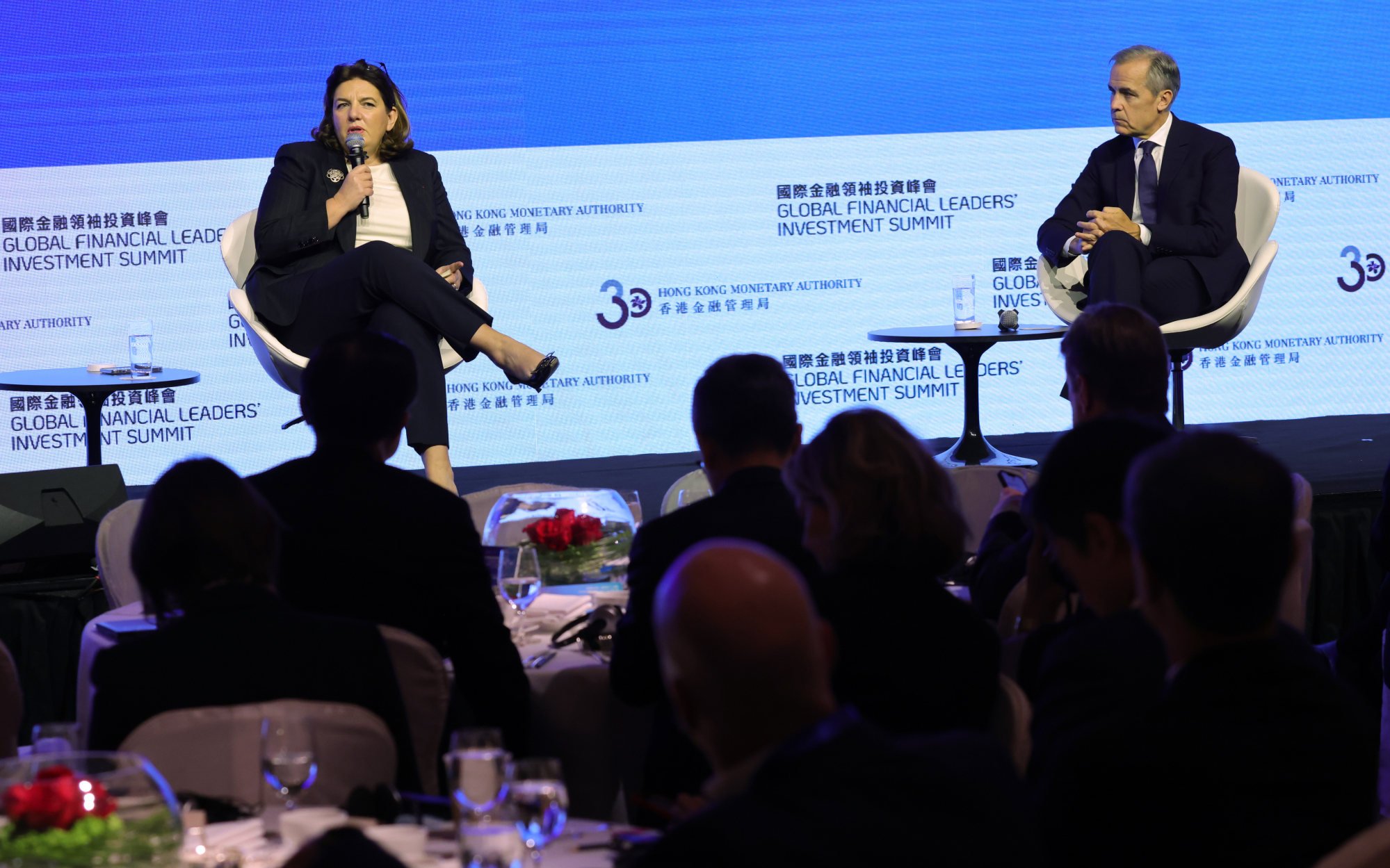Hong Kong has the potential to be a leading hub for green finance due to its proximity to mainland China, with sound regulations already in place for such types of investments giving the city a head start, according to top bankers.
“Hong Kong has two fantastic advantages in the ESG [environmental, social and governance] and green finance areas,” Valerie Baudson, CEO of Amundi, said at a panel discussion on “ESG investments – at a crossroad” at the Global Financial Leaders’ Investment Summit organised by the Hong Kong Monetary Authority (HKMA) on Tuesday.
The city is a natural gateway to mainland China, where the funding needs to manage the business transition are huge, Baudson said.
So it is natural for mainland companies to tap funds in Hong Kong to finance climate-related projects, making the city an obvious choice to become a leader in green finance in the region, added the head of French fund manager Amundi, Europe’s largest with €2 trillion (US$2.14 trillion) of assets under management.

The Hong Kong government has been promoting the city to develop into a hub for green and sustainable finance serving mainland Chinese and international companies. Green and sustainable debt issued in the city, including bonds and loans, increased by more than 40 per cent year on year in 2022 to US$80.5 billion. The city accounted for a third of such debt issued in Asia in that period.
The HKMA and the market regulator Securities and Futures Commission have also been working on a regulatory framework for banks and financial firms to develop sustainable financing.
Hong Kong treats top bankers to banquet, cultural show to launch summit
Hong Kong treats top bankers to banquet, cultural show to launch summit
Baudson said the Hong Kong government and regulators had held discussions with Amundi some years ago to familiarise themselves with regulations and standards on ESG investments.
“There is both a strong commitment and a lot of opportunities in the region to make sure that Hong Kong is the leader in this area,” Baudson told the Post in an interview after the panel discussion.
During the discussion, Baudson said it was incumbent on the fund management industry to provide solutions and educate listed companies to transform their business in a way that can help cut down carbon emissions, save energy and reduce wastage.
“Because we invest in more than 8,000 companies around the world, we are big shareholders,” she said. “We can engage with the companies about their transitions and use our voting [rights] at the general shareholder meeting to encourage companies to improve their ESG.”
Amundi has adopted ESG principles in its investment for 15 years and has some €830 billion invested in stocks or bonds that match ESG criteria, she said.

Mark Carney, chair of Brookfield Asset Management and head of transition investing, speaking on the same panel, agreed with Baudson on Hong Kong’s early mover advantage on green finance.
“[Hong Kong] has mandatory regulations on reporting standards [that are on par] with the UK, Australia and Switzerland,” said Carney, the former Bank of England governor.
Bourse operator Hong Kong Exchanges and Clearing last week said it would postpone a new ESG listing requirement to January 2025 from January 2024, to give companies more time to prepare for the new climate-related disclosure requirements in line with standards from the International Sustainability Standards Board (ISSB).
The ISSB was set up during the COP26 global climate summit in Glasgow in 2021 to consolidate various reporting standards.
Bill Winters, group CEO of Standard Chartered, who was also a speaker on the same panel, said a lot of the bank’s clients were willing to undertake transformation of their business model to meet the stringent ESG requirements.
However, inconsistencies and the lack of a single ESG standard were the main challenges to achieving the goal, he said.
“For those who are a little bit less inclined to engage in the transformation, there are some 1,000 places to hide,” Winters said.

